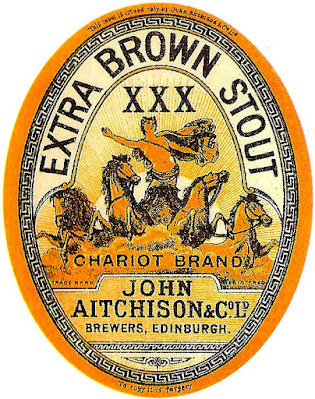This is one of the odder ones. It's from a long essay critiquing the 1831 Reform Bill. Which eventually became the 1832 Reform Act. Which was the start of restructuring parliament and making the size of and voting entitlement in constituencies more consistent. It extended the franchise to more of the middle classes. And that's where some saw a problem.
In every town about one house in seventeen is an alehouse; and as the nature of their business requires that they should be of the better class, it is probable that their occupiers will all be electors. The elective franchise in all large towns will thus in reality be placed in the hands of publicans. The attornies and apothecaries, though forming nearly half the remaining votes, will be powerless against this influential body, whose drunken decisions will henceforth decide the fate of empires. The other electors, too few in number to be considered, however important may be their interests, however qualified they may be for their functions, must content themselves with looking on. The new privileged orders will save them the trouble of deliberating on their choice. Henceforth the first qualification of a Member will be the strength not of his head but of his stomach. The man who in his own person best patronises the trade of the Blue Anchor, will be the fittest representative for such constituents. The great struggle of the Scots against the union with England was to preserve the purity of twopenny; and henceforth the most important duty of the Member for a great town, will be to watch over the integrity of butt beer. Whigs and Tories will disappear from history; the strife will be no more between the court and country parties, but between the advocates of brown stout and country ale. The balance of power will give way to the weight of malt; no free trade will be thought of but that in beer and gin.
"The Reform Bill Considered", London, 1831, pages 35 - 36.
Now, personally, I'd prefer pub landlords to be running the show rather than some other groups of the middle classes.
I'm imagining a bunch of drunken landlords slurping down Brown Stout and saying: "Yes! Let's invade Russia!" Then regretting launching the invasion when they sober up the next morning.
Did pub landlords dominate politics in the UK? Not by any means. In fact, politicians spent much of the rest of the century making life difficult for them. Limiting their opening hours and other such nonsense.
If only the Tories had disappeared from history.











































































10 comments:
George Eliot discusses this in her novel Felix Holt, about an election in a Midlands town around the time of the 1832 Reform Act in which the pubs become the committee rooms and the publicans the agents of the candidates.
https://www.theguardian.com/books/2016/jul/08/george-eliot-felix-holt-democracy-political-crisis
It's a difficult one: did someone really see this as a problem, or is it satire?
Ron could you try and do something similar to Guinness XXX. It was sold in the 1970’s and was wondering what it might have been like.
I'd love to know where the figure of one house in 17 being an alehouse came from. Because I can't see how that would be possible.
I'm pretty sure that Guinness XXX was just their Foreign Extra Stout rebadged for the British market and eventually they dropped the pretence that they were two different beers.
I can easily believe that. The 1830 Beerhouse Act allowed any householder to sell beer by buying a licence for two guineas.
And this was a period when toffs were drinking four bottles of port a day...
Thanks
Interesting
And that was just to get out of bed in the morning!
Post a Comment